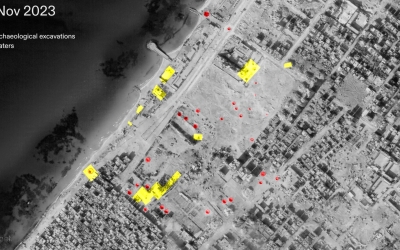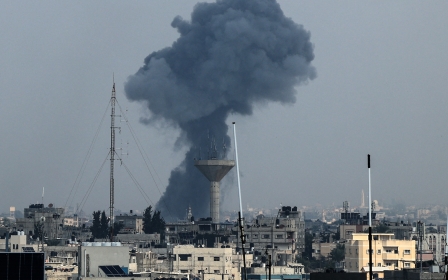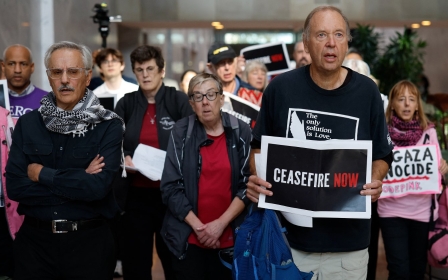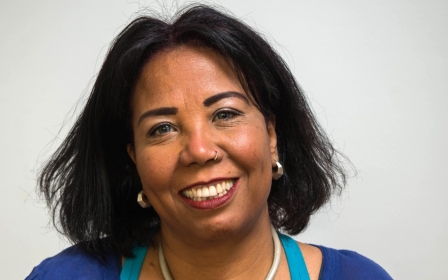Israel-Palestine: Ceasefire talks renewed as Gaza comes under heavy bombardment
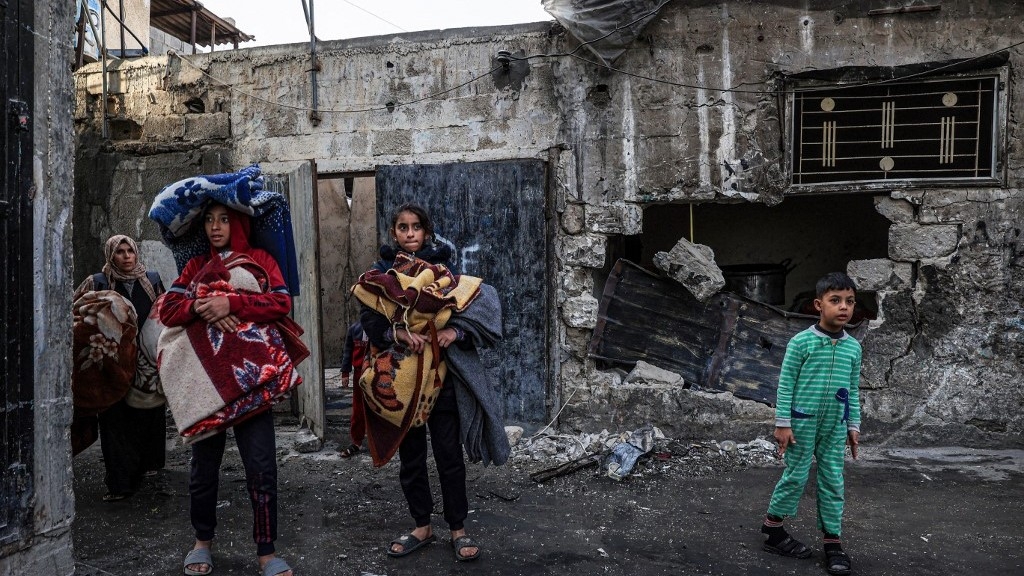
Diplomatic talks are reportedly under way to broker a second truce between Israel and Palestinian armed factions in Gaza, which would include the release of more captives from both sides.
An earlier deal agreed last month culminated in a seven-day ceasefire, and the release of 105 captives held by Hamas in Gaza and 240 Palestinian prisoners held in Israeli jails.
The Palestinian death toll from the Israeli war on Gaza has likely surpassed 20,000, as Israeli forces continued their onslaught on northern and southern Gaza on Wednesday, killing scores more civilians.
The Israeli army reported on Tuesday that 133 of its ground troops had been killed in battle since late October.
The Israeli offensive, initially limited to aerial bombardment, was launched on 7 October after an unprecedented Hamas-led attack on southern Israel killed around 1,200 people.
New MEE newsletter: Jerusalem Dispatch
Sign up to get the latest insights and analysis on Israel-Palestine, alongside Turkey Unpacked and other MEE newsletters
At least 240 people were also taken back to Gaza as captives. Currently, an estimated 130 captives remain in Hamas’s custody, including Israelis and foreign nationals.
On Wednesday, Hamas leader Ismail Haniyeh visited Cairo for talks with the head of Egypt’s intelligence agency on a ceasefire agreement and a possible prisoner exchange deal, a source close to the movement told AFP.
Follow MEE's live coverage of the Gaza war
Haniyeh also met with Iranian Foreign Minister Hossein Amir-Abdollahian earlier on Wednesday in Qatar, where the former is based.
According to sources cited by AFP, the current talks in Cairo would discuss proposals including “a week-long truce that would see the release of 40 Israeli hostages, including women, children and male non-combatants”.
AFP reported that Qatar and Israel have been discussing the proposals “with the knowledge of the US administration” and that the length of the truce would be open for extension depending on further agreements on prisoner exchanges.
In a similar report, a source briefed on the matter told Reuters that Qatari and Egyptian-mediated talks are assessing potential individuals to be released in a prospective agreement.
Israel is emphasising the inclusion of women and male captives with health issues in the list of those to be released. The source also mentioned the possibility of including Palestinians incarcerated in Israeli prisons for serious offences.
Meanwhile, the US-based Axios website cited Israeli sources as saying that an Israeli proposal is on the table, including a pause in hostilities for a minimum of one week in exchange for the release of “more than three dozen hostages” held by Hamas.
According to Axios, CIA director Bill Burns met with Qatari Prime Minister Mohammed bin Abdulrahman bin Jassim Al Thani and Mossad chief David Barnea on Monday in Warsaw, to discuss a potential deal that would include the release of about 40 Israeli captives, including women, elderly people and seriously wounded people.
UN ceasefire vote delayed again
The truce reports come as a UN Security Council vote on a draft ceasefire resolution was delayed again on Wednesday, after two previous votes were unsuccessful due to a US veto and disagreements on wording.
Diplomats told Reuters that the vote was delayed at the request of the US. The diplomats said that the US was currently unhappy with parts of the draft resolution, introduced by the United Arab Emirates, that asks the UN to take over the monitoring of all humanitarian relief shipments to Gaza.
"We want to make sure that the resolution ... doesn't do anything that could actually hurt the delivery of humanitarian assistance, make it more complicated. That's what we're focused on," US Secretary of State Antony Blinken told reporters.
Rights groups have for months demanded accountability from the Biden administration over its support of Israel's military campaign in Gaza, including by filing lawsuits against the administration.
On Wednesday, the rights group Democracy for the Arab World Now (Dawn) also called on the International Criminal Court (ICC) to investigate a list of 40 senior Israeli commanders for war crimes over their involvment in Israel's military response to the 7 October attack.
"These 40 IDF commanders who have been responsible for planning, ordering, and executing Israel's indiscriminate bombardment, wanton destruction, and mass killing of civilians in Gaza should be prime suspects in any ICC investigation," Sarah Leah Whitson, Dawn's executive director, said in a statement.
"While Israel has done its best to conceal the identities of many of its officers, they should be put on notice that they face individual criminal liability for the crimes underway in Gaza."
Renewed bombardment
Israeli raids on Gaza have not relented since dawn on Wednesday, with strikes on Jabalia in the north and Khan Younis in the south killing dozens of Palestinians, mostly women and children.
Other air strikes targeted areas in Rafah, in southern Gaza, killing and wounding dozens.
Meanwhile, Jagan Chapagain, secretary general and CEO of the International Federation of Red Cross and Red Crescent Societies, said in a post on X, formerly Twitter, that the humanitarian situation in Gaza is "desperate".
“Aid delivery is becoming increasingly more difficult due to the ongoing shelling and lack of fuel and supplies,” Chapagain said.
The UN's World Food Programme (WFP) delivered food into Gaza on Wednesday through the Israeli Kerem Shalom border crossing, in the first direct aid convoy from Jordan since the beginning of the war.
The 46-truck convoy arrived after "weeks of coordination with all parties", the WFP said in a statement.
"[It is a] crucial first step [that] could pave the way for a more sustainable aid corridor through Jordan and allow for the delivery of more aid at scale."
Middle East Eye delivers independent and unrivalled coverage and analysis of the Middle East, North Africa and beyond. To learn more about republishing this content and the associated fees, please fill out this form. More about MEE can be found here.


